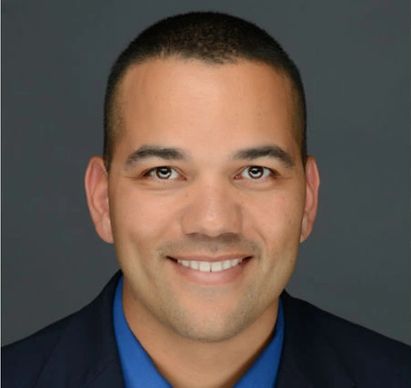Since January 2019, through a series of cooperative grants, Williamson County has been successfully implementing alternatives to incarceration for emerging adults. Program participants are non-violent offenders who have a greater chance at rehabilitation through case management rather than jail.
Presiding Judge Stacey Mathews, 277th District Court, oversees the Transformative Justice Docket. She and Program Director Terence Davis are not only championing the program, they are building partnerships with community agencies like Bluebonnet Trails, Helping Hands of Georgetown, and Lone Star Circle of Care to provide therapy, support, and paths to independence.
EMERGING ADULTS
Defined as individuals 17-24 years old, these offenders are too old for juvenile detention, but, because of their age and maturity, it is believed adult incarceration is less likely to fully rehabilitate them. Data show emerging adults represent 10 percent of our civilian population, but make up nearly 30 percent of arrests and 21 percent of the adult prison population.
This age group is distinguished in the justice system because psychology tells us our brains do not fully mature until we are about 25 years old. This suggests a cause as to why more than 75 percent in this demographic re-offend in the short term, and their probations are revoked at a rate three times higher than older adults.
The Transformation program follows a formal process to divert young adults from “grown-up” prison after being charged with a felony offense. Individuals are referred to and connected with myriad services to match each person’s needs and support outcomes most likely to reduce the need for incarceration, or recidivism.
“This is not a move to be soft on crime. It is a plan to be proactive about the behavior of an individual,” Judge Mathews says. “We want to defer cases out of the criminal system and into services that will help people become productive members of the community.
“With great support from [County] Judge Gravell and Commissioners, this program is now funded and managed by the county, which enables us to choose and partner with any agency or program that will provide whatever these young adults need. For some, it might be substance abuse counseling; for others, a tutor to prepare them for their GED, and maybe a few dollars to pay for the test.”
HOW—AND WHY—IT WORKS
Three full-time staff provide case management, and assist the participants to navigate judicial and social accountabilities. Williamson County Juvenile Services Director Scott Matthew says, “In additional to judicial requirements, we match services to the need, then match activities and opportunities to a ‘spark’ of interest that inspires and motivates each person.”

Terence explains, “Participants go through rigorous drug assessments and counseling in three phases, which takes 9-18 months and constant supervision. With community support, we find projects, jobs, and training connections. These activities provide opportunities for positive feedback and reinforcement from professionals, judges, and lawyers who are all involved and invested in their success. This aids in their transition from the sense of being perceived as a criminal to a person who has a second chance.”
He says the ‘spark’ doesn’t always have to be big to be important or give back in a meaningful way. “One of our participants loves to cook and he created a instructional video on how to properly cook a steak. He also loves basketball and participated in the Dunks for Diapers event to help another program participant who had just had a baby.”
Judge Mathews adds, “Costs for case management and services are managed through grants from the Texas Indigent Defense Commission, and local donations. It is worth the investment and it saves our taxpayers the costs of incarceration, which total about $100 daily per inmate.”
A WIN-WIN-WIN
Judge Mathews and Terence shared one of many success stories.
“A current participant has a problem with substance abuse, and lives at home with his working mother and three siblings, two of whom have special needs. Their mobile home has no insulation or flooring, and the family is simply not able to meet basic needs.
“We reached out to local churches and had materials donated to help fortify the home. This helped rebuild the young man’s desire to work hard because he has something he values and does not want to lose it. On top of that, we enlisted other program participants as volunteers to do the work, which gave them a sense of pride; knowing what it feels like to help someone and be part of a community.”
BE PART OF IT
Individuals and businesses can contribute to program success by supporting local organizations of all types that provide resources and referrals for life skills and independent living. As well, non-profit, faith, and charitable organizations can provide volunteer opportunities to mentor and help young people on their service path. Judge Mathews recalls, “One graduate had a heart for the homeless. We contacted Helping Hands of Georgetown and they had a volunteer who mentored her; modeling how to fundraise, create a budget to shop for basic needs, and provide appropriate sundries for homeless individuals. She still volunteers there and very fulfilled giving back to the community in such an impactful way.”
Visit TJ-SC.org for videos, information, and events.
